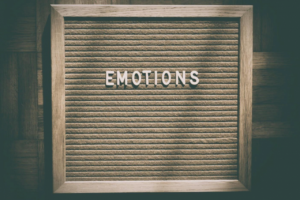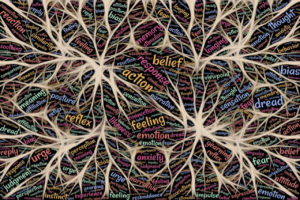Emotions influence how we engage with others, affect the decisions we make and our relationship with them, and how we respond to them, and communicate with them, makes all the difference.

The Inspired Work of
Passionate about accessible education and evidence-based wellness, Laura founded The MAPS Institute, an educational wellness editorial and platform. Aside from her passion for research and educating, Laura is a classically trained vocalist, sound therapist, and a practitioner and teacher of Ashtanga and Restorative Yoga. She is the creator of the MAPS (Mindfulness, Activation, Purpose, and Surrender) philosophy and is in continual pursuit of helping her students and herself find balance amid the chaos around and within them. When not sifting through Nature Magazine, complaining about their paywalls, she enjoys trying new wine varietals, experimenting in the kitchen, riding her bicycle (sometimes cross-country), and spending time with her husband Charlie, cockapoo Miles, and expected baby girl, Ella. Click here to follow the MAPS Institute on social media.

Emotions influence how we engage with others, affect the decisions we make and our relationship with them, and how we respond to them, and communicate with them, makes all the difference.

What does your work space look like?

The act of identifying your purpose and bringing it to life on a consistent basis, however, can prove challenging. I don’t know about you, but there are times when I feel overwhelmed when I begin a new project or am pursuing a purpose-driven goal.

When was the last time you felt truly happy for another being? The Buddha taught that our happiness is tied directly to the happiness of others. This practice of mudita, therefore, helps teach us to experience the joy of others in a heartfelt way, regardless of their relationship to us and, in so doing, nurture the seeds of our own happiness.

Play encourages abstract thought and improves our ability to imagine. It releases endorphins and helps us envision other perspectives — hello empathy!
Even more powerfully, recent research has shown that play helps build connections of neurons in the pre-frontal cortex — what I call “the boss” because it’s the decision making part of our brains.

So what is gratitude?
Cicero, in Roman culture, named gratitude the “mother” of all human feelings.
In woo-woo talk, it’s that tingly, fuzzy, feel-good sensation inside our minds, and maybe even hearts. It’s validation. It’s instant happiness.
And it is. When we express gratitude, it acts as a catalyst for our brain to release dopamine and serotonin – neurotransmitters responsible for happiness.
Page [tcb_pagination_current_page] of [tcb_pagination_total_pages]
Join us to get our weekly newsletter, The Practice, for FREE and access to all of our articles, downloadable resources and online programs so you can start building your personal practice of Mindfulness, Activation, Purpose and Surrender and live the authentic, bold, and dynamic life you've always wanted.